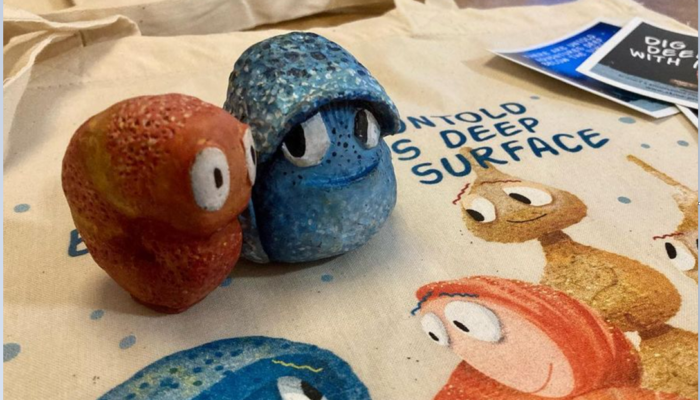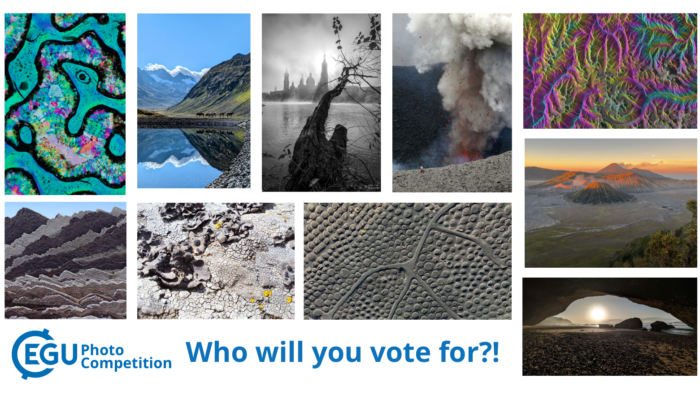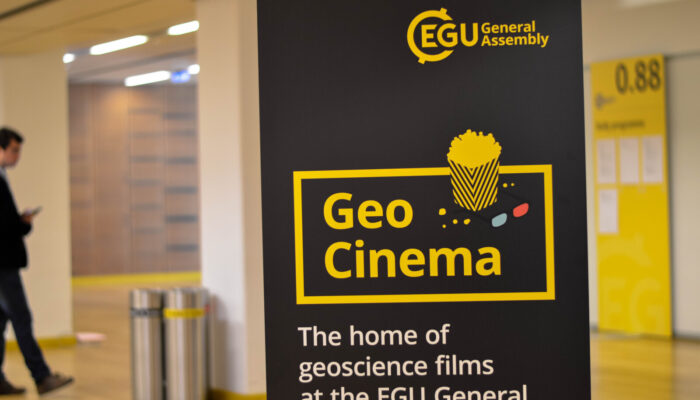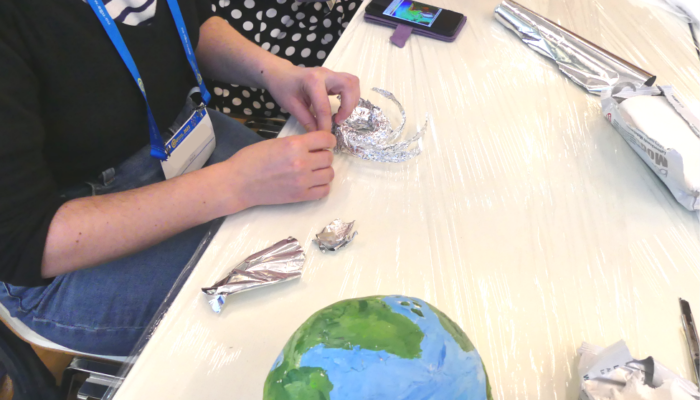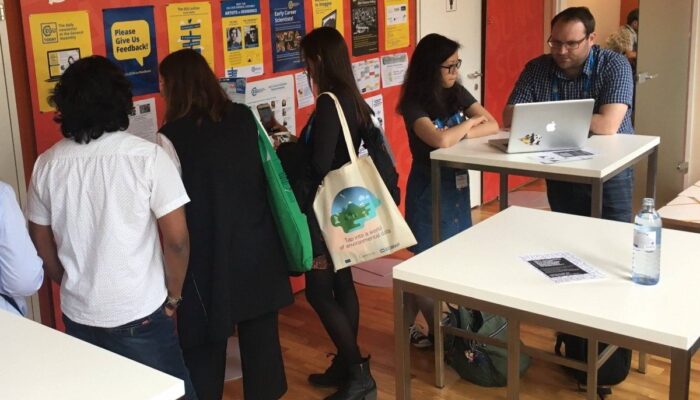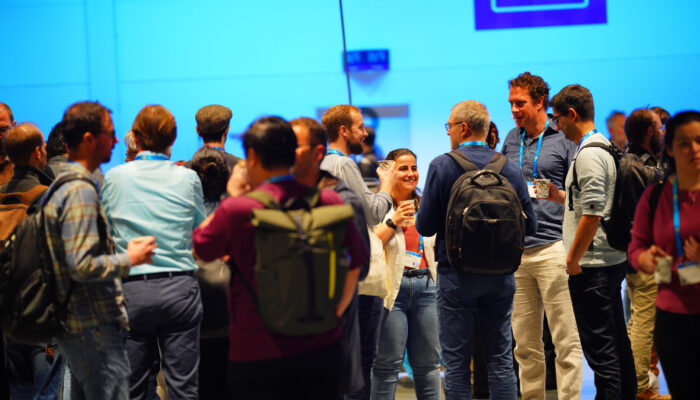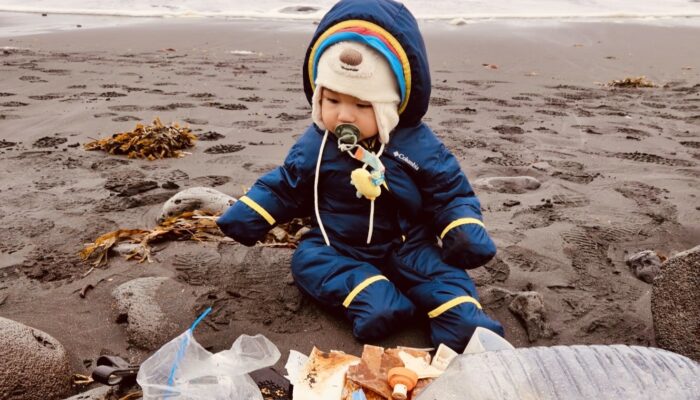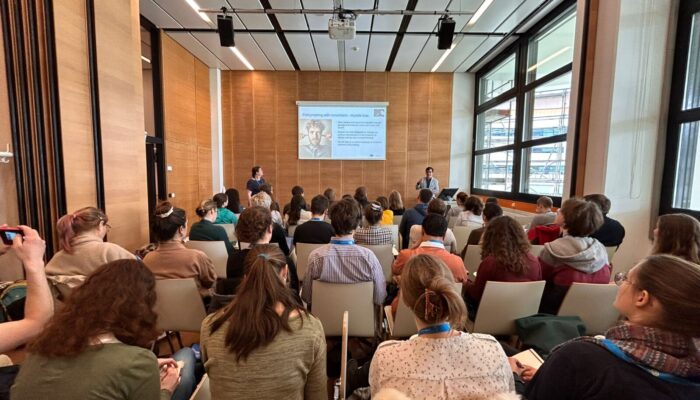There are so many great events to participate in at EGU25 this year, in both on-site and virtual formats, that it can be very easy to feel overwhelmed. Whilst we encourage you to make good use of your Personal Programme to help organise your activities, we also reached out to several of EGU’s Committees that are responsible for specific other aspects of EGU’s activities, including the ...[Read More]
GeoLog
Get our top Outstanding Student and PhD-candidate Presentation (OSPP) tips for EGU25, from previous winners and judges!
Every year at the General Assembly hundreds of students present their research with a lot of time and effort going into preparing these presentations. With the aim to further improve the overall quality of poster presentations and more importantly, to encourage Early Career Scientists to present their work in the form of a poster, the OSP Awards (as they were formerly known), were born. Since the ...[Read More]
GeoLog
EGU25 Photo Competition finalists – who will you vote for?
This year’s Photo Competition judging panel did a fantastic job of narrowing down the outstanding photo submissions to the EGU’s Photo Competition to just 10 finalists! The finalist photos are listed below and on the Imaggeo website where you can vote for them from Sunday 27 April until Thursday, 1 May 2025 – voting closes at 18:00 CEST. The three photos with the most votes will be an ...[Read More]
GeoLog
GeoCinema: coming soon to the EGU25 General Assembly!
After a big success last year, GeoCinema is back for EGU25! As many of you know, doing science is very rarely just about the research, but also involves sharing that research in several forms and formats. For many talented researchers this means using films. Either working with a film-maker or creating something themselves, several of our EGU25 attendees submitted wonderful films this year, from s ...[Read More]
GeoLog
EGU25: Get creative at the General Assembly with EGUart and more!
At EGU we take our science seriously, but we also value creativity and the role it plays in all aspects of being a researcher, from designing your study to science communication! The EGU25 General Assembly offers plenty of avenues for creativity in every way, shape and form! If you’re keen to indulge your creative side or curious about the possible intersections between science and art, look no fu ...[Read More]
GeoLog
What’s on for Early Career Scientists at EGU25
Early Career Scientists (ECS) – defined as a student, a PhD candidate, or a practising scientist who received their highest certificate (e.g. BSc, MSc or PhD) within the past seven years – compose about half of EGU’s members. Many of the sessions and events throughout the Assembly are built with our ECS attendees in mind, from introducing you to the Assembly and the Union as a whole or the numerou ...[Read More]
GeoLog
Find your scientists: how to network at EGU25
The General Assembly is the nucleus around which EGU’s community gathers and connects, providing a week of opportunity to meet new people and reaffirm old bonds. Progress within science and its impact on society rises from the confluence of ideas and a diversity of voices; to facilitate meeting and discussion at the Assembly, #EGU25 offers a number of paths for building your network. Network ...[Read More]
GeoLog
Hold my Baby: Improving Institutional Policies of Parenting and Field-based Research
We are researchers. Researchers are people. People sometimes have children. These are three simple statements (and fundamental truths) that are often overlooked by institutional and funding policies, leading to a disconnect between the demands of research and the responsibilities of parenthood. Especially in field-based research, which is typical in the geosciences, rigorous expectations of long h ...[Read More]
GeoLog
What’s on at EGU25: highlights from Equality, Diversity and Inclusion (EDI) Committee
There are so many great events to participate in at EGU25 this year, in both on-site and virtual formats, that it can be very easy to feel overwhelmed. Whilst we encourage you to make good use of your Personal Programme to help organise your activities, we also reached out to several of EGU’s Committees that are responsible for specific other aspects of EGU’s activities, including the ...[Read More]
GeoLog
GeoPolicy: Your guide to engaging with science for policy at EGU25
Each year, the EGU’s Science for Policy Programme at the EGU General Assembly provides participants with insights on how their research and expertise can be integrated into the policymaking process and the opportunities that exist for them to engage. This month’s GeoPolicy Blog post highlights some of the exciting #Sci4Pol sessions and initiatives that you can engage with! While this blog post hig ...[Read More]

